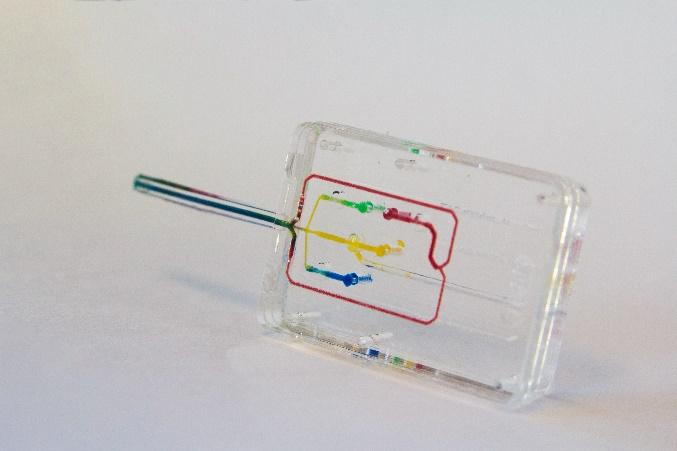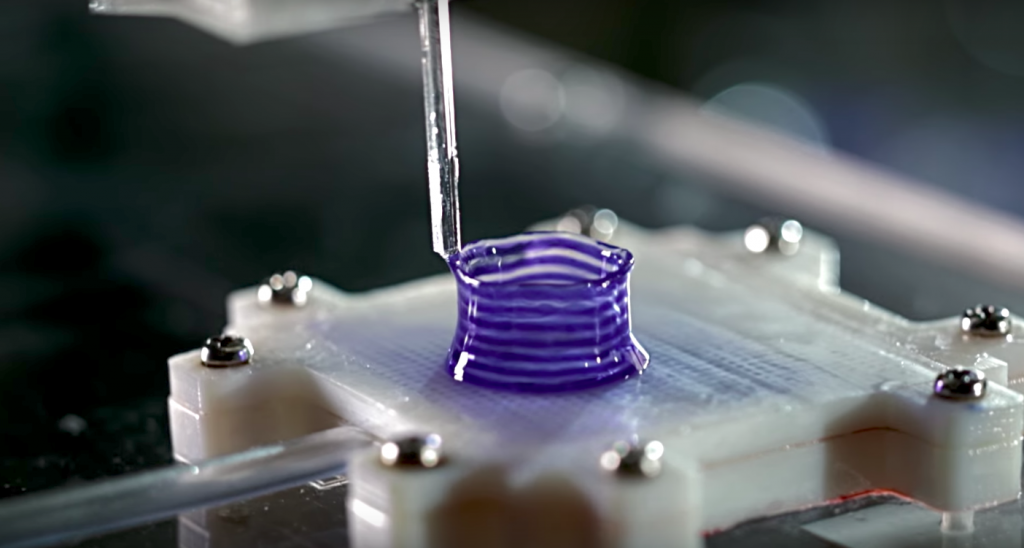Canadian 3D bioprinting technology company Aspect Biosystems has announced its involvement in a $2.2 million project seeking to find new treatments for cancer. Starting this year, the company will be working with collaborators at two of the world’s largest pharmaceutical companies Merck and GSK, as well as McGill University’s Goodman Cancer Research Centre in Quebec.
Tamer Mohamed, CEO of Aspect Biosystems, comments:
“This public-private partnership is a great example of combining state-of the-art technology and science with world-class expertise and resources to accelerate the discovery and development of new therapies for patients.”
Microfluidic 3D bioprinting
Aspect Biosystems is the developer of the Lab-on-a-Printer™ 3D bioprinting technology. With this platform, the company enables the simultaneous deposition of multiple biological materials through a microfluidic printhead. The overall goal is to create complex living tissues capable of closely replicating natural human matter.
Working with Maastricht University in the Netherlands, Aspect is currently conducting a project to produce artificial kidney tissue suitable for medical testing. With $1 million of support from Canadian non-profit organization Genome British Columbia, Aspect has been pursuing commercialization of its technique. Since 2017, the company has also been working with leading pharmaceutical company Johnson & Johnson to develop meniscus tissue for knee injuries.

Accelerating cancer immunotherapies
Aspect’s role within this new $2.2 million collaboration will be to create “physiologically-relevant 3D tissues containing patient-derived cells.” These 3D bioprinted tissues will then be used by researchers to assess the efficacy of anti-cancer drugs and predict a patient’s response to treatment.
At McGill University, the Goodman Cancer Research Centre will be contributing its bio-bank of patient-matched tumour-associated cells to create programmable, 3D bioprinted tumour models with Aspects technology. Discussing the project Dr. Morag Park, director of the Goodman Cancer Research Centre, explains, “Solid tumour growth is regulated by complex interactions of tumour cells with the tumour microenvironment. This collaboration seeks to create a powerful new platform for studying these critical interactions in a human-relevant environment and, ultimately, accelerate the discovery and development of novel cancer immunotherapies.”
The research is made possible by funds contributed by Aspect, McGill University, Merck, GSK, the Canadian Cancer Society and the CQDM biopharmecuetical research consortium.

3D printing opportunity in Canada
In recent years Canada, and particularly the Quebec region which is home to McGill, has invested heavily in the advancement of 3D printing and bioprinting. In 2017, the Québec Industrial Research Center (CRIQ) and the CHU Québec-Université Laval in Québec City launched plans to open a $2.874 million (USD) medical 3D printing center focusing on creating artificial limbs and tissues.
Noting the uptake of the technology in the nation’s medical sector Health Canada, a department of the Canadian government, recently issued its guidance for the 3D printing of medical devices (though it does not, at present, cover bioprinting).
Concluding Aspect’s most recent announcement Anna Van Acker, president and managing director of Merck Canada Inc., commented “As a founding member of the CQDM, Merck Canada is proud to support this investment in R&D with the objective of potentially improving patient response to some treatments for breast cancer patients,”
“We believe that collaboration between public sector, academia, patients, NGOs, industry and government will lead to innovations that improve patient outcomes…”
“[…] today’s announcement is yet another example of the modern R&D model we are pursuing in Canada.”
For more of the latest 3D printing medical news subscribe to the daily 3D Printing Industry newsletter, follow us on Twitter, and like us on Facebook.
Find talent for a project, or advance your career in 3D printing – join 3D Printing Jobs to apply and advertise.
Featured image shows the 3DBioRing™ muscle tissue platform. Photo via Aspect Biosystems



